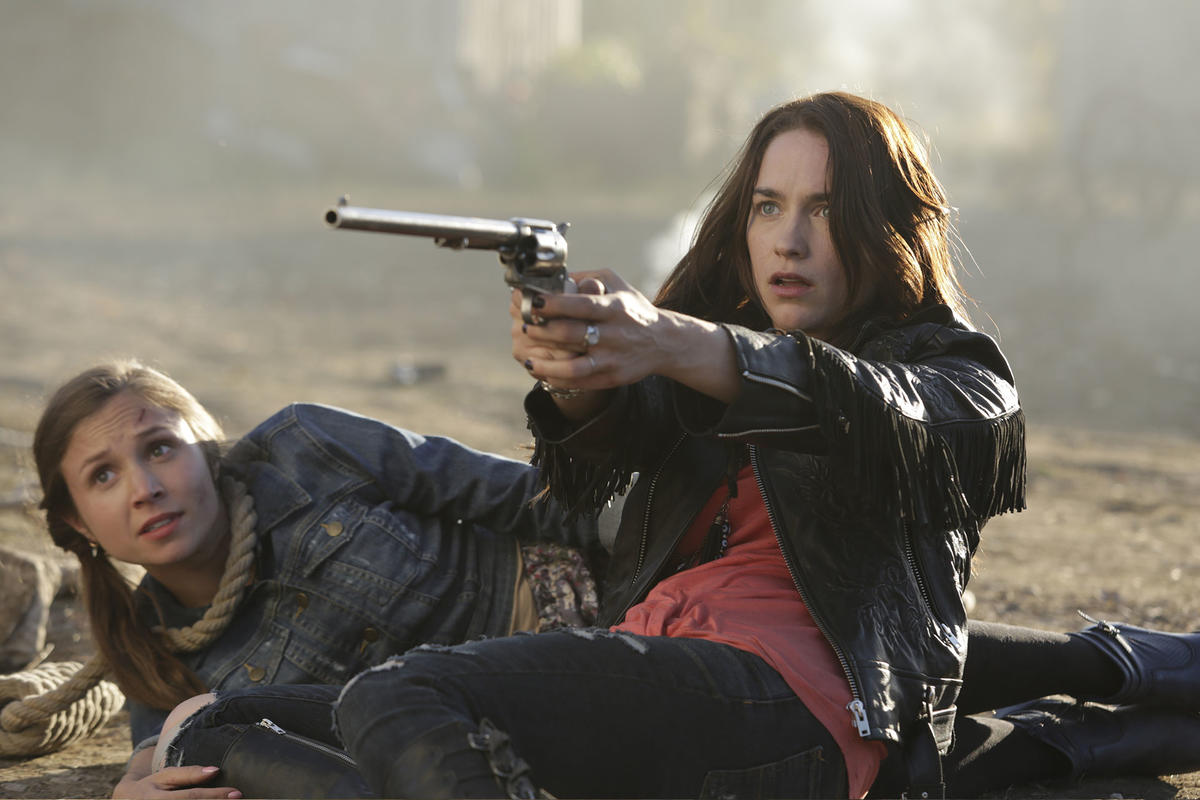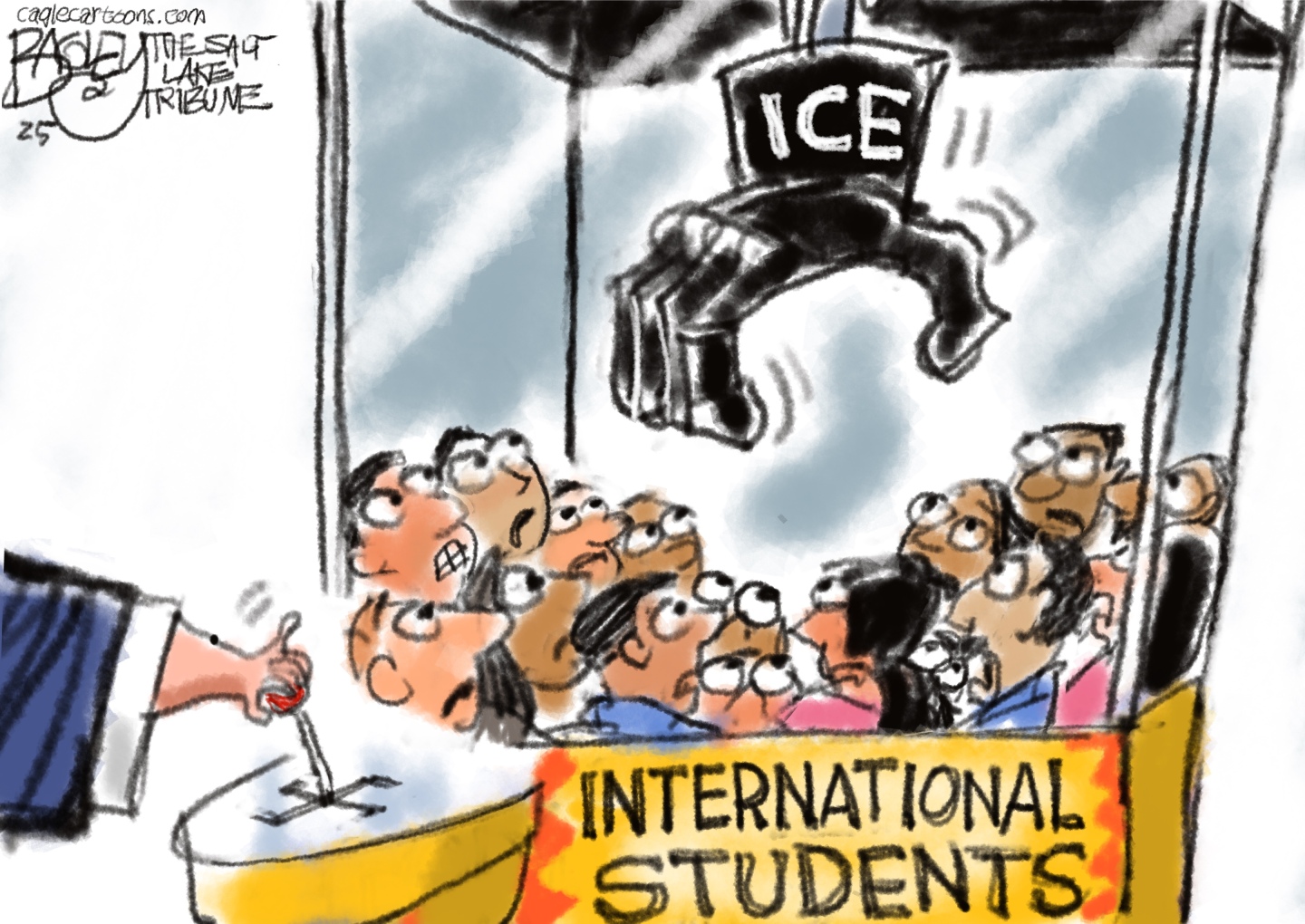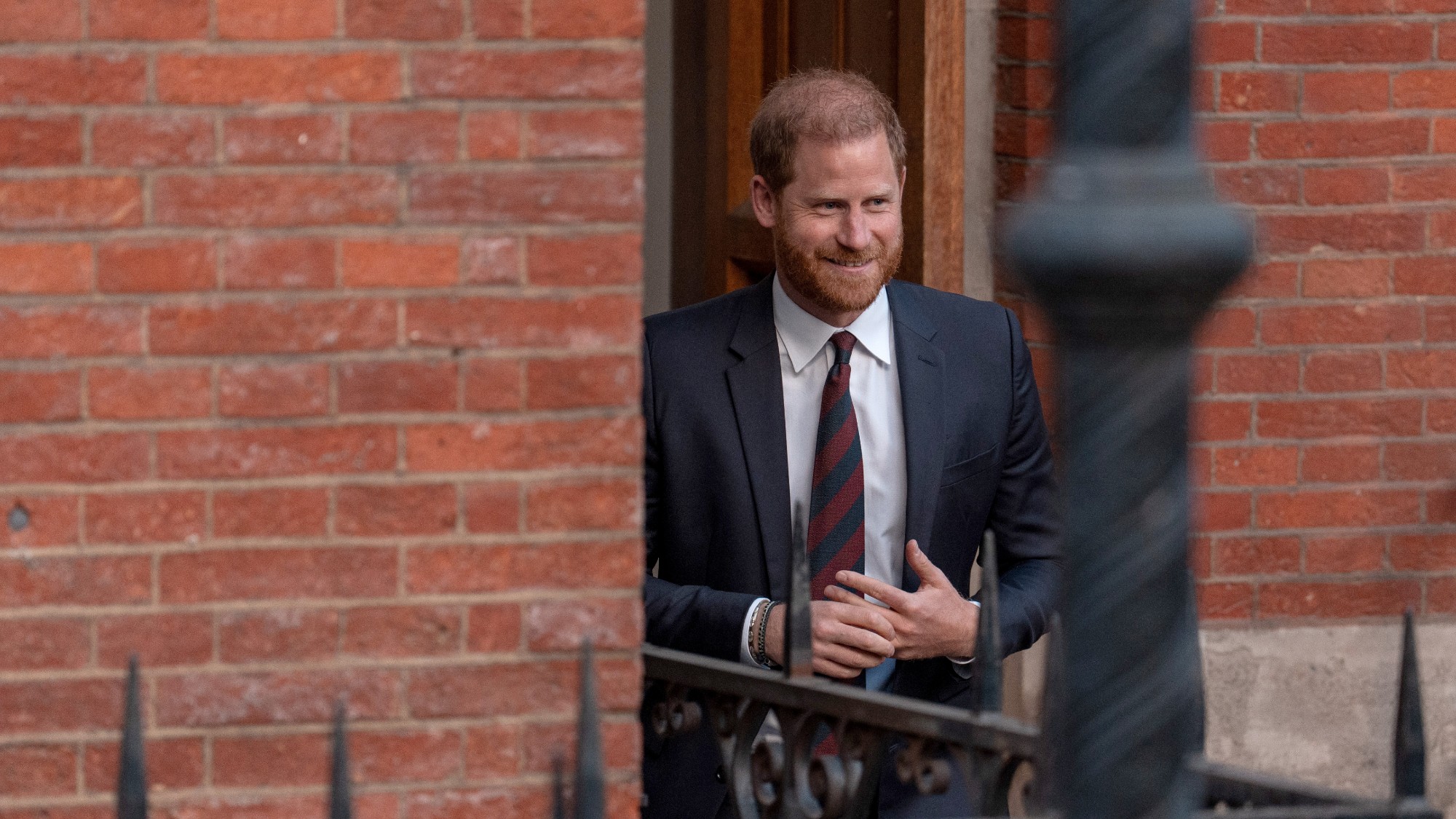How low-budget Wynonna Earp keeps the superhero bros at bay
This is not a show for everyone — and that's a relief


There is a very good chance that Syfy's Wynonna Earp is not for you. There is also a very good chance that Wynonna Earp does not want to be for you. This wild female-fronted supernatural Western, the third season of which just premiered last week, has not outlasted a whole crop of glitzier TV shows by trying to make everyone happy.
Its freedom comes from a restraint: This series is comically low budget. But Wynonna's creators are able to make a radically progressive show because they don't face the same financial risks associated with more expensive "feminist" TV and movies, which still need to appeal to a general (and more male) audience.
For the uninitiated, Wynonna Earp follows the titular character (Melanie Scrofano), who is cursed with the task of sending 77 demonic bandits killed by her great-grandfather back to hell using a magical gun called Peacemaker. That might be weird, but it isn't groundbreaking; female superheroes are hardly a phenomenon in 2018, after all — just look at the success of Marvel's Jessica Jones or DC's Wonder Woman. What makes Wynonna Earp so noteworthy is that it has earned a majority female viewership. Even Wonder Woman only reached parity.
Subscribe to The Week
Escape your echo chamber. Get the facts behind the news, plus analysis from multiple perspectives.

Sign up for The Week's Free Newsletters
From our morning news briefing to a weekly Good News Newsletter, get the best of The Week delivered directly to your inbox.
From our morning news briefing to a weekly Good News Newsletter, get the best of The Week delivered directly to your inbox.
One of the headwinds facing superheroine movies and TV is that unlike their male counterparts, which can largely coast on audiences made up of teenage boys, they have to appeal to everyone to break even. Wonder Woman cost $150 million to produce while Netflix dropped $200 million to make all its Marvel shows, putting very rough estimates of Jessica Jones' budget at around $40 million a season. With those kinds of numbers, it could be financially reckless to risk alienating male viewers, no matter how feminist the works set out to be. As a result, some critics have criticized Wonder Woman for its "prevailing occupation with the titular heroine's sex appeal" and Jessica Jones for "sort of cheating at feminism."
But because Wynonna Earp does not need to make back seven figures to earn its keep — Syfy hasn't released exact figures, but showrunner Emily Andras claims it has the equivalent of "Game of Thrones' cut up vegetable budget" — it can take risks with little pushback from producers and remain richly entertaining over the course of its dozen-or-so episode seasons.
One such gamble has been resisting making Wynonna "some dude's idea of a broken woman," as Andras put it to Inverse. While the show's creators frequently play with genre tropes, one they have so far avoided is "rape as backstory," in which sexual trauma is used as a convenient shorthand for why a female character is dark, brooding, or angsty. Although portraying the realities of sexual trauma in popular culture is important, and superhero projects like Jessica Jones have been applauded for doing so realistically, it's also too frequently a crutch used by the historically male creators of the original comic book characters. Even the Amazons in Wonder Woman secluded themselves from Man's World after being raped by Heracles.
Wynonna's backstory is more unique. While she is certainly her own dark person — surviving a demon attack in her childhood made outsiders believe she was crazy — the show avoids using sexual trauma as an unnecessary plot device to complicate the hero's character.
Instead, Wynonna is unapologetically "womanly" in a way that isn't inviting to all audiences. "With Wynonna, it was really critical to me that she was a woman that we, as women, recognize," Andras said in the Inverse interview. Bloomberg's Megan McArdle has critiqued Jessica Jones for this, writing that "you can't just turn male characters into females. Think post-patriarchy, not 'girl superhero.'" Wynonna is not just "one of the boys," nor is she a damsel in distress; the fact of her being a woman isn't making some larger point. She loves motorcycles, leather, and whiskey, but also doesn't want her decorative throw pillows to get destroyed.
Although the original comics play up Wynonna's comically curvaceous figure, the TV show creators have also demonstrated no interest in catering to the male gaze. In fact, one of Wynonna Earp's boldest moves in the second season was folding Melanie Scrofano's real-life pregnancy into the plot. (She had her son four days after the second season wrapped.) While many shows will go to absurd lengths to hide an actress' pregnancy, Wynonna is visibly pregnant as she sends demons back to hell and kicks down doors. And despite a pregnant superheroine potentially being jarring for some viewers, it is not a plot point that holds Wynonna back: "Believe it or not, being pregnant doesn't affect my ability to send evil s--tickets screaming back to hell," she quips in one episode.
This quote also gets at the final reason Wynonna Earp is so special: It's just really, really fun.
Groundbreaking adaptations like Wonder Woman and Jessica Jones had to take their feminist missions very seriously. Indeed, part of their appeal to audiences was that they were can't-miss events — the first female-fronted superhero blockbuster and Marvel's first female-fronted superhero venture respectively. But unencumbered by budget or social expectations, Wynonna Earp has the space to be light. Wynonna's demon-murdering quips are often hilariously raunchy; the low production values give the whole show a zany, B-movie texture; and there is an overriding sense of security that lets you sit back and enjoy the whole thing. This isn't a show where you have to worry your favorite couple might get killed off.
Wynonna Earp is a series that can't be bothered with taking itself too seriously. And if that isn't your cup of tea, then there are no hard feelings. Instead, by doing nothing to explicitly win over a bro-y bloc of viewers, and facing little financial risk for doing so, Wynonna Earp proves that low-risk productions are at the forefront of real change in the film and TV industry.
"It's such a relief to not have to make TV for everyone," Andras has told The New York Times. It's such a relief to watch it, too.
Sign up for Today's Best Articles in your inbox
A free daily email with the biggest news stories of the day – and the best features from TheWeek.com
Jeva Lange was the executive editor at TheWeek.com. She formerly served as The Week's deputy editor and culture critic. She is also a contributor to Screen Slate, and her writing has appeared in The New York Daily News, The Awl, Vice, and Gothamist, among other publications. Jeva lives in New York City. Follow her on Twitter.
-
 5 heavy-handed cartoons about ICE and deportation
5 heavy-handed cartoons about ICE and deportationCartoons Artists take on international students, the Supreme Court, and more
By The Week US
-
 Exploring the three great gardens of Japan
Exploring the three great gardens of JapanThe Week Recommends Beautiful gardens are 'the stuff of Japanese landscape legends'
By The Week UK
-
 Is Prince Harry owed protection?
Is Prince Harry owed protection?Talking Point The Duke of Sussex claims he has been singled out for 'unjustified and inferior treatment' over decision to withdraw round-the-clock security
By The Week UK